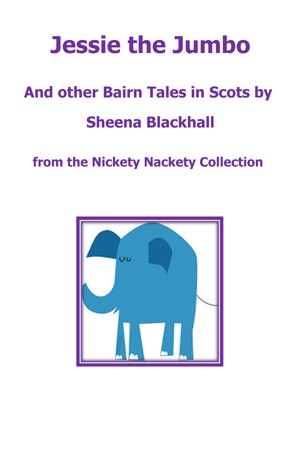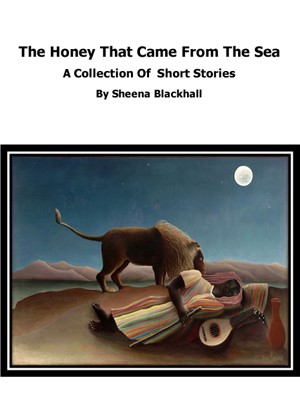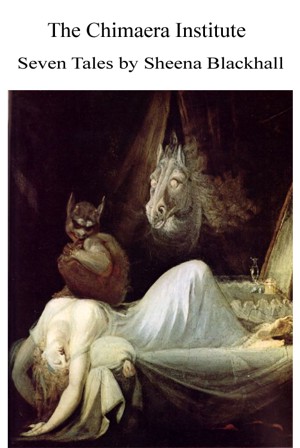Location: United Kingdom
Member Since:
Nov. 12, 2011
1 reader has added this author as a 'Favorite Author'.
Sheena Blackhall
Biography
As on Wiki: Sheena Blackhall (b. Sheena Booth Middleton) was born in 1947 in Aberdeen, daughter of the manager of Strachan's Deeside Omnibus Service, Charles Middleton, and his second cousin, farmer's daughter Winifred Booth. She was educated in Aberdeen, but summered in Ballater for many years. Her brother, Ian Middleton, was an accomplished organist and clavichord player, who was the manager of a merchant bank in São Paulo, Brazil, where he settled and died.[2] During the typhoid epidemic in Aberdeen of 1964, Blackhall was hospitalized in the town's City Hospital for several weeks.[3] The family transport firm, owned by her aunt, closed as a side effect of this. After a year's study at Gray's School of Art, Blackhall passed a teaching diploma and worked for a time as a special needs teacher, marrying and raising a family of 4 in this period, when she wrote children's stories for BBC Radio Scotland. In 1994 she obtained a Bsc (Hons. Psych) from the Open University, going on to gain an M.Litt with Distinction from Aberdeen University in 2000. From 1998-2003 she was Creative Writing Fellow in Scots at [4] Aberdeen University's [1] Elphinstone Institute and is currently attached to the Institute as an Honorary Research Associate. In 2003 she travelled as part of a group to Washington, showcasing Scotland's culture as a guest of the Smithsonian Institution. In 2007 she was Creative Writing Tutor at the Institute of Irish and Scottish studies at King's College, and two years later was Writer in Residence during Aberdeen University's Word Festival.[5] In April 2009 she was inaugurated as Makar[6] for Aberdeen [7] and the North East of Scotland.[8] She has won the Robert McLellan tassie for best Scots short story 3 times (1989,1990,2001) and the Hugh MacDiarmid trophy for best Scots poem 4 times (1990,2000,2001,2010). In 1992 she shared the Sloane Award with Matthew Fitt from St. Andrew's University. Other prizes include awards from the Doric Festival, the Bennachie Baillies, and from the TMSA for ballad writing and traditional singing. She has twice been shortlisted for the Callum Macdonald Poetry Pamphlet prize (2005 & 2009). In 2007, Lallans Magazine awarded her the William Gilchrist Graham prize for best Scots short story. She has also been shortlisted for the McCash poetry prize.
Blackhall worked alongside Aberdeen's well loved 'first lady of drama' Annie Henderson Inglis MBE at Aberdeen Arts Centre, from 2003-2010 delivering weekend storytelling and drama workshops for three to eight year olds.
Blackhall worked alongside Aberdeen's well loved 'first lady of drama' Annie Henderson Inglis MBE at Aberdeen Arts Centre, from 2003-2010 delivering weekend storytelling and drama workshops for three to eight year olds.
Where to find Sheena Blackhall online
Books
Jessie The Jumbo
by Sheena Blackhall
Price:
Free!
Words: 18,780.
Language:
English (Scottish dialect).
Published: April 8, 2014
.
Categories:
Fiction » Children’s books » Fiction
Jessie the Jumbo is a book of 27 tales from the Nickety Nackety Collection commissioned by Frieda Morrison of BBC Radio Scotland, presenting a glorious menagerie of animals all in Scots, written for pre-schoolers to grandparents. From rabbits with toothache to superhero cows, dancing stags to mischievous mice, these tales by the award winning author Sheena Blackhall are guaranteed to delight.
The Honey That Came From The Sea
by Sheena Blackhall
Price:
Free!
Words: 90,260.
Language:
English.
Published: January 29, 2012
.
Categories:
Fiction » Anthologies » Short stories - single author
Here is a selection of short stories, drawn from collections of prose by the author. Best known for her Scots writing, here her work in English is presented, with a smattering of Scots dialogue.
The tales deal with the mysteries of life, religion, ageing, birth and sex . There is humour, mystery and intrigue, from Maharajahs to Shortbread, and always the often dark dynamics of human relationships.
The Chimaera Institute
by Sheena Blackhall
Price:
Free!
Words: 17,730.
Language:
English.
Published: November 13, 2011
.
Categories:
Fiction » Anthologies » Short stories - single author
Anecdotes, rumour, gossip...urban myths can straddle all those categories. Often they are short, like fables and can be told quickly in a paragraph or two. The tales in this book draw from various sources. I like to think of urban myths as little acorns desperate to grow into oaks, and love providing them with knots, gnarls and leaves.
Sheena Blackhall's tag cloud
aberdeen
animals
children
children and animals
fiction
fiction author
fiction fairy tales folk tales legends mythology
kids
kids and adults
kids stories
makar
myth
myth and legend
myths legends
scotland
scots
scots language
scots stories
scottish author
scottish fiction
scottish literature
scottish short stories
sheena
sheena middleton
short stories
stories




